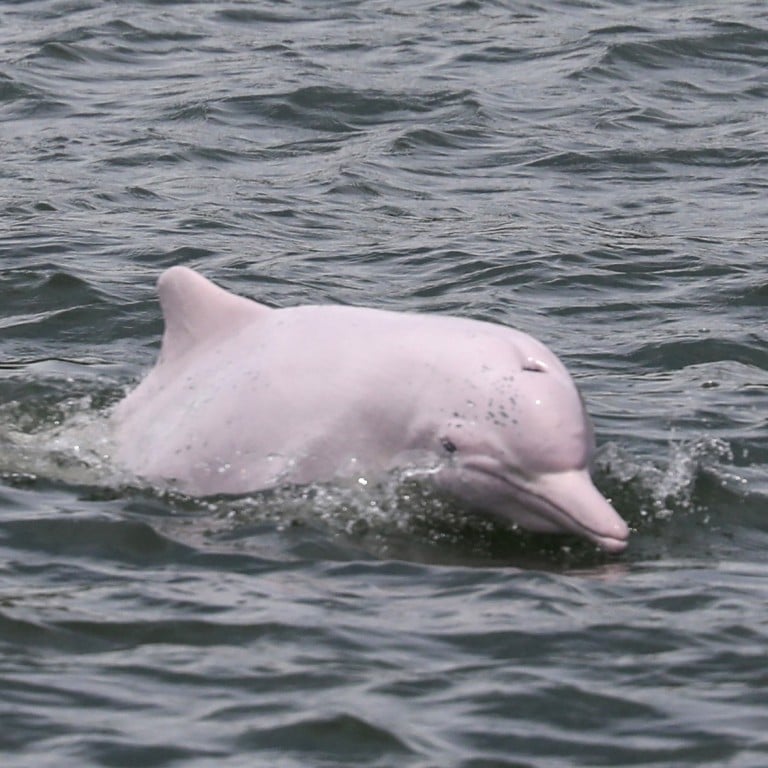Feel strongly about these letters, or any other aspects of the news? Share your views by emailing us your Letter to the Editor at [email protected] or filling in this Google form. Submissions should not exceed 400 words, and must include your full name and address, plus a phone number for verification I am bothered by the possibility that we may never again see
pink dolphins frolicking in Hong Kong’s waters because of the Lantau reclamation work. We badly need concerted efforts to save these creatures from becoming extinct as a result of the city’s
infrastructure development plans.
These dolphins were a common sight off the coast of Lantau Island not long ago. It led to regular dolphin-watching events in Tai O and helped revive the local economy to a certain extent.
However, the pace of infrastructure development in Hong Kong has long posed a threat to the habitats of animals both on land and in the sea. The construction of Hong Kong International Airport on
Chek Lap Kok, the
Hong Kong-Zhuhai-Macau Bridge and the airport’s
third runway has adversely affected the marine ecosystem around Lantau. There have been cases of pink dolphins being injured or even killed because of the heavy flow of sea traffic.
Engaging in massive land reclamation to create
artificial islands off the coast of Lantau could cause irreversible
damage to marine ecosystems. In addition, the acoustic vibrations from blasting or drilling by heavy machinery will disturb fish and marine mammals. Seabirds foraging for food in the vicinity of Lantau will undoubtedly face challenges.
Human activity and the changing environmental conditions will undermine the health of marine inhabitants. To protect sea animals from harm and keep the ocean intact as much as possible, it is incumbent on the government to map out a long-term plan for marine conservation.
Pages Ng, Tuen Mun
City must do better than just kill wild boars
I refer to “Hong Kong’s wild boar numbers dropped by 26% last year as authorities ramped up culling”
(March 13). Is this something to be proud of? Education systems worldwide are sadly failing to teach respect and appreciation for nature. Euthanising the boars after they innocently enter urban areas in search of a meal is cruel; the trap, neuter and return policy was more humane.
It’s sad to label a wild animal a nuisance when the cause of the problem is humans. How about some television ads to drive this message home: “Want to lose a whole load of money? There’s a way you can’t fail. Feed a wild boar and end up in jail.”
Joan Miyaoka, Sha Tin
Plastic ban must promote reusables
I applaud
the op-ed, “Hong Kong plastic ban: let’s aim for reusables, not green disposables” (March 26), which suggested that opting for reusable tableware and takeaway containers would be a better way to protect our environment.
We seem to underestimate our ability to adapt to new ways of going about our daily lives, such as how we purchase groceries and dispose of our garbage. When the plastic bag levy was introduced, people quickly began carrying their own bags when they went to the market. It wasn’t such an inconvenience after all.
More importantly, the use of plant-based tableware and containers is not really eco-friendly and also produces the same amount of waste.
I urge the government to make suitable policy changes before going ahead.
T.C. Ng, North Point


